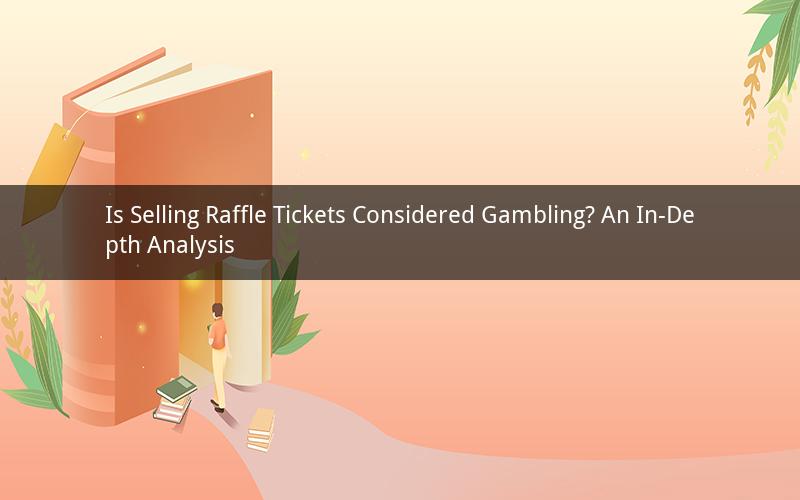
In today's world, the concept of gambling is often associated with high-stakes games of chance, such as casinos, poker, and sports betting. However, the line between gambling and other activities can sometimes be blurred. One such activity is selling raffle tickets. This article aims to explore whether selling raffle tickets is considered gambling and delve into the legal and ethical aspects surrounding this issue.
Understanding Raffle Tickets
Raffle tickets are a form of fundraising that involves participants purchasing tickets for a chance to win a prize. The proceeds from the ticket sales are often used to support a charity or a specific cause. Raffles are commonly found in schools, churches, and community events.
The Debate on Gambling
The debate on whether selling raffle tickets is considered gambling hinges on the definition of gambling. Gambling is generally defined as an activity involving risk, consideration, chance, and prize. In the case of raffle tickets, the risk and chance elements are evident. Participants are taking a chance on winning a prize, and the purchase of a ticket involves consideration (the price of the ticket).
However, opponents argue that raffle tickets are not considered gambling due to the absence of a professional gambling establishment or organized gambling activities. They contend that raffles are merely a form of fundraising, and the proceeds are used for a charitable purpose.
Legal Aspects
The legality of selling raffle tickets varies from one country to another and even within different states or regions. In some places, raffles are explicitly permitted, while in others, they are subject to strict regulations.
In the United States, for instance, the legality of raffles is determined by state laws. Some states have specific provisions for charitable raffles, while others require a permit or license to hold a raffle. In Canada, the Criminal Code defines lottery as a form of gambling, but certain exemptions are made for charitable and educational purposes.
Ethical Considerations
From an ethical standpoint, the debate on whether selling raffle tickets is considered gambling revolves around the fairness of the activity. Critics argue that raffles can be deceptive, as participants may not be fully aware of the odds of winning or the purpose of the funds raised.
Supporters, on the other hand, contend that raffles are a transparent and straightforward way of raising funds for a good cause. They argue that the risks involved are minimal and that the proceeds are used for a beneficial purpose.
Common Questions and Answers
1. Question: What is the main difference between a raffle and a lottery?
Answer: The main difference between a raffle and a lottery is that a raffle requires participants to purchase tickets, while a lottery typically involves the sale of numbered tickets without a requirement for purchase.
2. Question: Can a raffle be considered gambling in all states?
Answer: No, raffles are not considered gambling in all states. The legality of raffles varies by state, with some states explicitly allowing charitable raffles and others requiring permits or licenses.
3. Question: Are there any age restrictions for purchasing raffle tickets?
Answer: Yes, many jurisdictions have age restrictions for purchasing raffle tickets. In the United States, for example, it is common for raffle tickets to be sold only to individuals over the age of 18.
4. Question: Can a raffle be used to raise funds for a personal cause?
Answer: In most cases, raffles are used for charitable or educational purposes. Using a raffle to raise funds for a personal cause may be subject to legal restrictions and ethical concerns.
5. Question: Are there any tax implications for selling raffle tickets?
Answer: The tax implications of selling raffle tickets depend on the specific laws and regulations of the jurisdiction. In some cases, proceeds from raffle ticket sales may be tax-exempt if used for a charitable or educational purpose.
In conclusion, the question of whether selling raffle tickets is considered gambling is a complex one. While there are arguments on both sides, the legality and ethical implications of raffles vary widely depending on the jurisdiction and the specific circumstances of the event. As long as raffles are conducted in accordance with local laws and regulations, they can be a valuable tool for raising funds for charitable and educational causes.